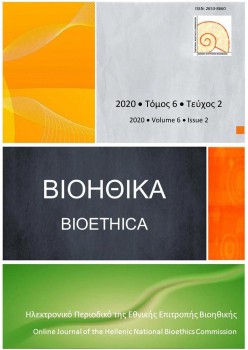Inventions for SARS-CoV-2 vaccines

Abstract
The rapid spread of the SARS-CoV-2 virus is the new pandemic that humanity is called upon to deal with. The special characteristics of the virus in combination with the absence of effective antiviral medication and vaccine, make the disease a significant threat to global health. This paper addresses the issue of innovation in the midst of a pandemic in the field of diagnostic and therapeutic procedures, namely vaccines for the SARS-CoV-2 virus and how these could become public goods that will be provided without expected profit, considered global public goods. The issue is so crucial for public health that the State and the international community are called upon to contribute to research and development, in terms of participating in the business risk of the industry (with public funding), but also to intervene to protection of the global good of public health, possibly considering compulsory patent licensing solutions that will result from vaccine research.
Article Details
- How to Cite
-
Lefakis (Λέανδρος Λεφάκης) L. (2020). Inventions for SARS-CoV-2 vaccines. Bioethica, 6(2), 20–29. https://doi.org/10.12681/bioeth.24841
- Section
- Original Articles

This work is licensed under a Creative Commons Attribution 4.0 International License.
Authors who publish with this journal agree to the following terms:
- Authors retain copyright and grant the journal right of first publication with the work simultaneously licensed under a Creative Commons Attribution CC BY 4.0 License, which allows for immediate free access to the work and permits any user to read, download, copy, distribute, print, search, or link to the full texts of articles, crawl them for indexing, pass them as data to software, or use them for any other lawful purpose. Appropriate credit must be given by citing the author(s) and the original publication in this journal.
- Authors are able to enter into separate, additional contractual arrangements for the non-exclusive distribution of the journal's published version of the work (e.g. post it to an institutional repository or publish it in a book), with an acknowledgement of its initial publication in this journal.
We encourage authors to deposit their articles, as well as data underlying the publications, in institutional and/or other appropriate subject repositories.
Bioethica permits and encourages authors to archive the final publication pdf in institutional (e.g. the repository of the National Hellenic Research Foundation) or other appropriate subject repositories (e.g. SSOAR repository for social sciences), in compliance with institutional and/or funder open access policies, after publication in the BIOETHICA. Authors must provide bibliographic details that credit publication in the journal, as well as related funding details (when applicable).
Lists of institutional and other subject-based academic open access repositories can be found listed by country at the registry http://opendoar.org/countrylist.php
If your institution does not possess a repository you may deposit a copy of your paper at no cost with www.zenodo.org , the repository supported for open access research in the EU by the European Commission, through the project OpenAIRE (www.openaire.eu )


